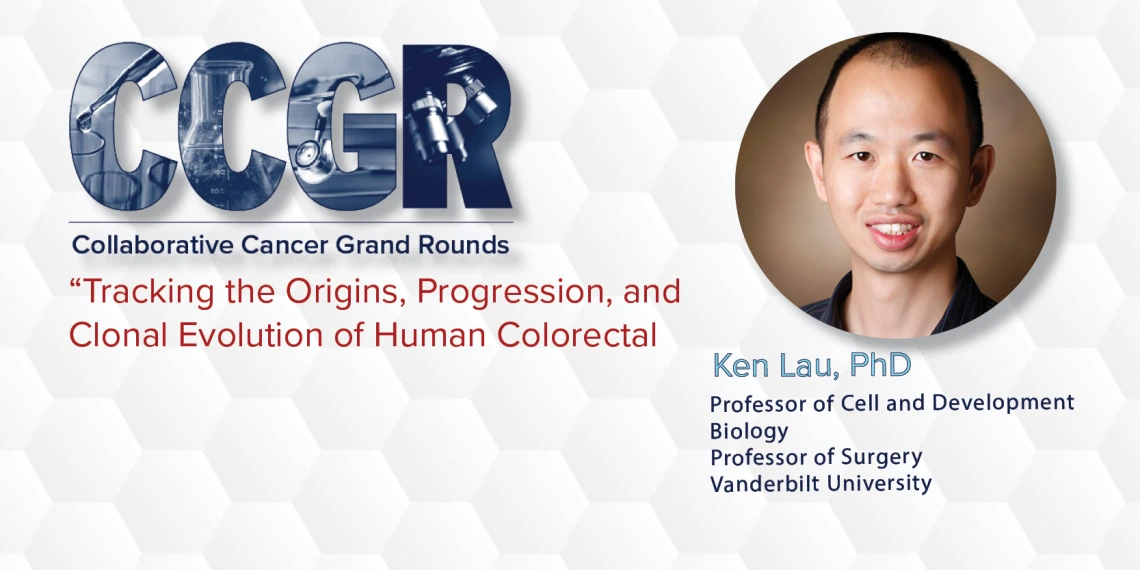Collaborative Cancer Ground Rounds explores the origins, progression, and clonal evolution of human colorectal precancers

Ken Lau, PhD, FACP, will lead a discussion on "Tracking the Origins, Progression, and Clonal Evolution of Human Colorectal Precancers" at the Cancer Center Collaborative Ground Rounds at noon on Friday, April 18, in Kiewit Auditorium. The event is also available on Zoom.
Lau is director of the Center for Computational Systems Biology at Vanderbilt University School of Medicine and professor of both cell and developmental biology and surgery. He completed his doctorate in bioinformatics and proteomics in 2008 at the University of Toronto, Canada. He was a postdoctoral scholar at Harvard and MIT with Kevin Haigis, PhD, and Douglas Lauffenburger, PhD, for four years before starting the Lau Lab at Vanderbilt in the spring of 2013.
Lau’s lab develops and applies computational approaches to understand epithelial tissue function and organization. According to his lab website, the goal of his lab is to understand how the inflammatory microenvironment signals to epithelial cells to alter their characteristics. This disruption in the microenvironment balance can lead to colorectal cancer.
Juanita Merchant, associate director, of the U of A Cancer Center basic sciences, Regents’ Professor of medicine and chief of the U of A College of Medicine – Tucson’s Division of Gastroenterology and Hepatology, invited Lau for CCGR, and said the visiting scientist is an expert in understanding the biology of precancers.
“We have much to learn from Dr. Lau regarding multi-omic approaches to cancer origins,” said Merchant. “His talk will provide an excellent platform for an important discussion on the biomedical implications of tracking precancers.”
Last year, Lau published “The Hallmarks of Precancer” in Cancer Discovery, where he and other researchers examined the need for risk stratification, which is assigning risk status to patients, in order to prevent overdiagnosis and overtreatment of precancers. In order to address cancer in this they create a set of generalizable principles that govern early lesions
The publication also explored the role of genetic and epigenetic aging and other factors when developing effective intervention and health policy strategies.
For more information or for the Zoom link, contact Ann Bridges, U of A Cancer Center academic and events coordinator.

